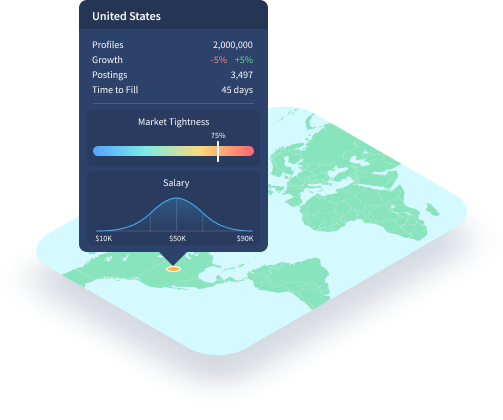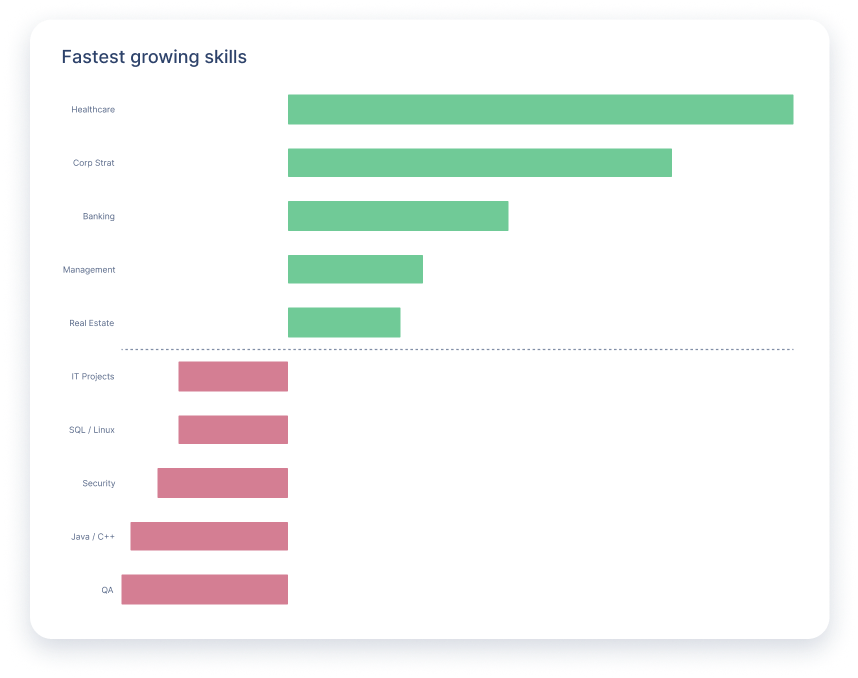
Plan for the Future with Location Strategy
Understand the talent conditions of any country, city, or metropolitan area to build a dynamic location strategy. Investing time in a data centric market selection will give you a competitive advantage, create long-term talent sustainability, and reduce total recruitment costs.

Identify Strategic Locations
Leverage workforce data that extends beyond LinkedIn to find opportunities for expansion and strategically determine where to consolidate.


Compare the Workforce Across Markets
Analyze key differences between markets on accurate and complete data.


Understand Emerging Markets
Create long-term sustainability by identifying new & emerging markets today.



What is location strategy?
A talent location strategy is a critical framework that organizations employ to effectively identify, attract, develop, and retain skilled individuals within specific geographic regions. This strategy is particularly vital for businesses operating in competitive industries or seeking international expansion, ensuring access to essential talent pools for driving growth and innovation. Key components of such a strategy encompass conducting comprehensive market analysis, aligning talent decisions with overarching business objectives, and strategically pinpointing regions abundant in trainable talent.
Within the broader context of location strategy, site selection assumes a pivotal role as a cornerstone for organizational growth and operational success. By evaluating potential sites for new facilities, businesses can strategically position themselves to capitalize on market opportunities, optimize operational efficiency, and mitigate risks. The site selection process involves a thorough analysis of geographic, market, infrastructure, cost, labor, quality of life, and regulatory factors to identify the most suitable location aligned with the organization's strategic objectives and operational needs.
Moreover, integrating talent intelligence into site selection decisions further enhances organizational resilience and competitiveness. This ensures access to the right skills and expertise, contributing to long-term sustainability and competitive advantage. With the increasing prevalence of remote work, talent location strategies may incorporate considerations for managing distributed teams and implementing technologies to support remote collaboration. Additionally, effective risk management is integral, requiring organizations to evaluate potential risks associated with talent location decisions, such as political instability or economic downturns, and implement mitigation measures. Overall, a well-executed talent location strategy enables organizations to optimize their workforce, enhance competitiveness, and adapt to evolving market conditions effectively.